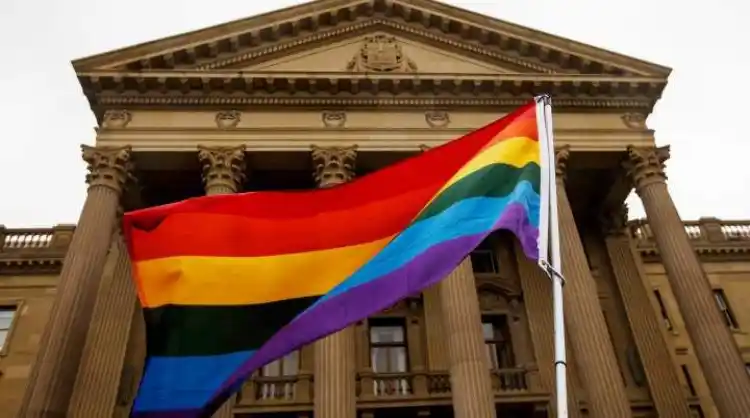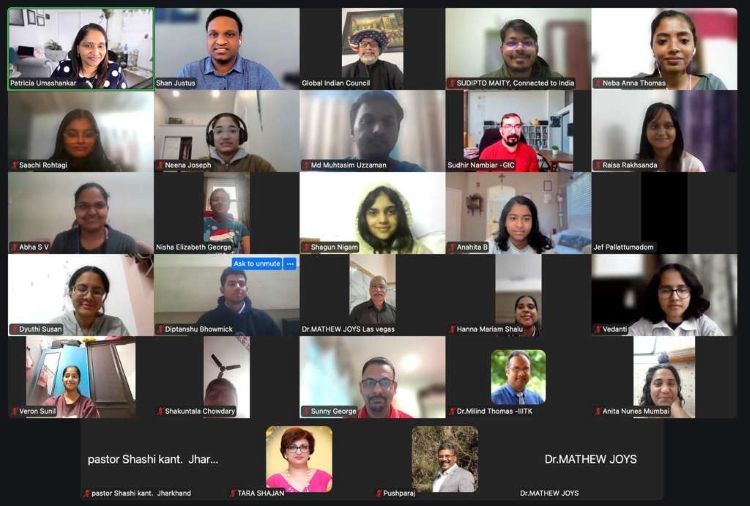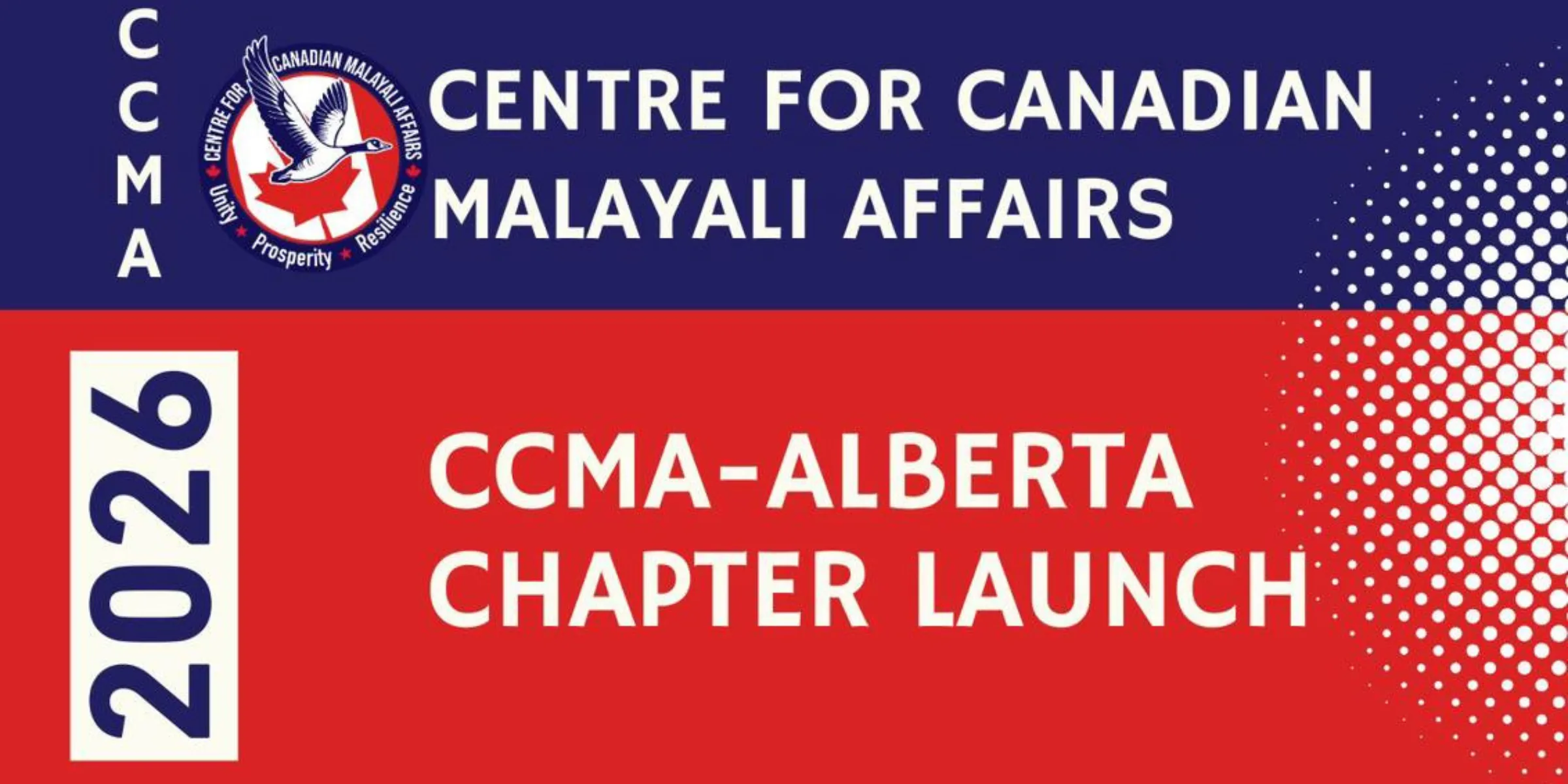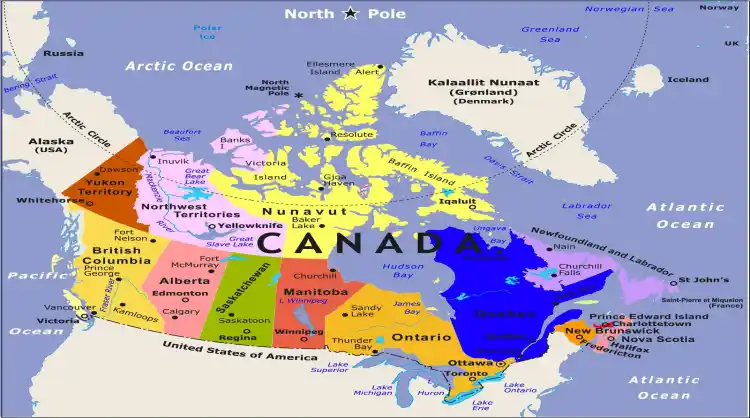Alberta’s UCP government is preparing to use the notwithstanding clause on three transgender laws.

The Alberta government is preparing to invoke the Charter’s notwithstanding clause on three controversial laws affecting transgender people, according to an internal justice department memo obtained by media.

The leaked document, dated Sept. 10, directs civil servants to develop legislation for the fall sitting that would allow the laws to “operate notwithstanding the Canadian Charter of Rights and Freedoms and the Alberta Bill of Rights”.
The notwithstanding clause — Section 33 of the Charter of Rights and Freedoms — allows governments to pass laws that operate even if they violate certain Charter rights.

The laws at issue restrict gender-affirming health care for youth under 16, require parental consent or notification when students change names or pronouns in school and prohibit transgender girls and women from competing in female amateur sports.

In a written statement, Alberta Justice said the government will “continue to vigorously protect the safety and well-being of children using all available legal and constitutional means at our disposal, including the notwithstanding clause should our government deem it necessary.”
Cabinet is expected to consider the proposal on Oct. 21, shortly before the legislature reconvenes with a throne speech two days later.
On Friday afternoon, the Alberta NDP put out a release with party leader Naheed Nenshi taking aim at the premier.
He addressed Albertans directly, saying, “Your rights matter.”
“Danielle Smith is attacking your fundamental human rights,” Nenshi said.
“Although she calls herself ‘the most freedom-loving politician in Canada,’ from the moment she took power, she has systematically stripped away rights and freedoms from people she doesn’t like or disagrees with.
“Albertans have every right to be alarmed by this and ask themselves, ‘Who’s next?’“
Nenshi said Smith “clearly believes (the bills) are unconstitutional, and she doesn’t care.”
”Perhaps she doesn’t love freedom after all,” he said.
*What is the notwithstanding clause?*
The notwithstanding clause can only be invoked for five years at a time but it can be renewed.
Eric Adams, a constitutional law professor at the University of Alberta, said the clause has been used only a handful of times since 1982.
“It’s a powerful mechanism,” he said.
“Even if a court finds a law interferes with equality rights or freedom of religion, the notwithstanding clause protects it from being struck down.”
Adams cautioned that Alberta’s plan is still at the proposal stage.
“Governments internally discuss lots of options. For the notwithstanding clause to apply, it has to be debated in the legislature and passed as an amendment.”
If it proceeds, Alberta would join Quebec, Ontario and Saskatchewan in using the clause.
Saskatchewan invoked it in 2023 to shield a similar pronoun law from court challenges.
“The government’s original argument was that the laws complied with the Charter,” Adams said.
“But if they invoke the notwithstanding clause, then they no longer have to defend them in court. A judge couldn’t strike them down.”
Courts may still be able to issue declaratory rulings, he noted, assessing whether rights are being infringed even if the law remains in effect.
That issue is currently before the Supreme Court of Canada.
*Calgary trans man says move puts kids at risk*
For Milo Benard, a Calgary trans man who transitioned later in life, the government’s plan is deeply troubling.
“Everybody, regardless of whether they’re cisgender or transgender, should have the opportunity, especially when they’re young, to explore their identity,” Benard told the media.
“That could be dressing in a particular way, cutting their hair, using different words for themselves. That’s how they figure out what feels right.”
He said requiring parental consent in schools can endanger young people who may not have supportive families.
“Oftentimes, school is the only safe place that these kids have,” he said.
“If you have to out them to their parents, that puts them in a potentially unsafe situation.”
Benard also warned about the effects of restricting access to puberty blockers.
“Restricting access until 16 is not going to do anything. Puberty has already done a lot of the work, and that could cause a lot of emotional and physical anguish,” he said.
“This is taking away their agency and forcing them to live in a way that is not themselves.”
His message to Premier Danielle Smith’s government is blunt:
“Just listen to these kids and families. What you’re putting in place could potentially lead to the death of children. If you really cared about the kids, you would let them have access to these things.”
*Advocacy groups call decision ‘devastating’*
Amelia Newbert, co-executive director of the Calgary-based Skipping Stone Foundation, said the community is reeling from the leaked memo.
“Devastated — I don’t think there are other words,” she said.
“The one thing giving our community hope was that we were going to be able to be heard and have our rights decided on their merits by the court.
“The news they’re intending to use the notwithstanding clause has crushed the remaining hope the community has.”
Newbert said the impact on young people could be profound.
“For youth who have spent years on wait lists and gone through countless assessments to begin accessing gender-affirming care, to be told that’s no longer possible — I cannot fathom how youth and their families are going to process that,” she said.
“We are risking people’s lives.”
She warned that suicide rates among trans youth could also rise as a result.
“It’s inevitable,” she said.
“We’ve already seen demand for mental-health services rise significantly. With this most recent action, I don’t think organizations in the province are going to be able to provide the support that’s needed.”
Egale Canada, known as the country’s leading organization for 2SLGBTQI+ people and issues, is also speaking out.
“The government’s approach is abhorrent and an abuse of power,” said Helen Kennedy, executive director of Egale Canada.
“Premier Smith had indicated she would let the process follow through the courts. We took her at her word. Now to overrule all the experts and medical evidence for political purposes is shameful.”
Kennedy added that families are struggling with the news.
“For young people to have the province sponsor transphobia — to have your own government turn against you and deny you access to your identity — how do you deal with that at any age?” she said.
“People tend to think, ‘It doesn’t impact me.’ Well, it should. The notwithstanding clause was never meant to be a tool for government to silence and control, but that’s what it is being used for.”
*Legal battles underway*
Two of Alberta’s laws — the school pronoun rules and the health-care restrictions — are already facing legal challenges from advocacy groups, including Egale Canada and Skipping Stone.
In June, a judge granted an injunction halting the ban on puberty blockers and hormone therapy for minors under 16, finding it would cause “irreparable harm.”
*The province is appealing.*
The education law, which requires parental consent for students under 16 to change names or pronouns, came into effect this fall.
School boards have also begun asking parents to confirm children’s sex at birth for sports eligibility.
The third law, barring transgender athletes from female divisions, is also in effect.
Earlier this month, Smith directed the sport minister to use “all legal and constitutional means” to ensure its enforcement.
*Broader political implications*
Smith has previously described the clause as a “last resort,” but her government recently filed arguments in support of Quebec’s secularism law at the Supreme Court of Canada, calling the clause a “hard-fought and hard-won compromise” that protects provincial sovereignty.
Prime Minister Mark Carney has said he opposes pre-emptive use of the clause.
Kennedy said Albertans should take notice: “It can happen to anybody. Rights can be taken away based on the ideology of the government of the day.”
As for trans individuals like Benard, the issue is more personal.
“Kids know who they are,” he said.
“If the government really wants to protect them, it should be listening to what they’re asking for instead of taking it away.”
![]()








Leave a Reply